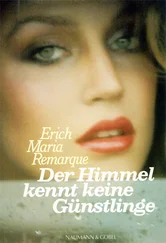I have a bottle of Roth schnaps in my hand and I am sitting on the last bench in the allée , facing the asylum. In my pocket crackles a check for sound foreign exchange, thirty whole Swiss francs. Marvels have not ceased: a Swiss newspaper, which I have been bombarding with my poems for two years, has suddenly accepted one and sent me a check for it. I have already been to the bank to inquire—it’s perfectly good. The bank manager immediately offered me a quantity of black marks for it. I am carrying the check in my breast pocket next to my heart. It came a few days too late. With it I could have bought a new suit and a white shirt and cut a respectable figure in the eyes of the ladies Terhoven. Too late! The December wind whistles, the check crackles, and I sit here in an imaginary tuxedo, wearing a pair of imaginary patent-leather shoes, which Karl Brill still owes me, and I praise God and worship you, Isabelle! A handkerchief of finest batiste flutters from my breast pocket, I am a capitalist on a pleasure trip; if the whim strikes me the Red Mill lies at my feet, in my hand sparkles the fearless drinker’s champagne, the tipple of Sergeant Major Knopf with which he put death to flight—and I drink to the gray wall behind which are you, Isabelle, Youth, and your mother, and God’s bookkeeper, Bodendiek, and Wernicke, Reason’s major, and the great confusion and the eternal war; I drink and see opposite me on the left the District Lying-in Hospital, with a few windows still lighted, where mothers are giving birth, and I am struck for the first time by its proximity to the insane asylum—I recognize it, as indeed I should, for I was born there and until today I had not thought of that! Salutations to you, too, familiar home, beehive of fruitfulness; they took my mother to you because we were poor and there was no charge for a delivery if it took place with a class looking on; thus from the very start I was useful to science! Salutations to the unknown architect who placed you so suggestively close to the other building! Very likely he intended no irony, but the good jokes in the world are always made by serious practical men. Nevertheless—let us praise reason, but let us not be too proud of it and not too sure! You, Isabelle, have yours back again, that gift of the Greeks, and up there sits Wernicke rejoicing—and he is right. But each time you are right you are one step closer to death. He who is right all the time has turned into a black obelisk! His own monument!
The bottle is empty. I throw it as far away as I can, and it makes a dull thud in the soft, plowed field. I get up. I have had enough to drink and now I am ready for the Red Mill. Riesenfeld is giving a farewell party there tonight—a farewell and lifesaving party. Georg will be there and so will Lisa. I, too, am going, but I had my few private farewells to attend to, and after all of it we are going to celebrate a terrific and general farewell—the farewell to the inflation.
Late at night we move like a drunken funeral procession along Grossestrasse. The scattered street lamps nicker. We have buried the year a little prematurely. Willy and Renée de la Tour have joined us. Willy and Riesenfeld got into a heated argument; Riesenfeld swore to the end of the inflation and the beginning of the rye mark era—and Willy explained that he would be bankrupt then and so it couldn’t be true. At this Renée de la Tour grew thoughtful.
Through the windy night we see in the distance another procession. It is coming toward us up Grossestrasse. “Georg,” I say. “Suppose we leave the ladies a little way behind; this looks like a fight.”
“Agreed.”
We are near New Market. “If you see we’re getting the worst of it, run straight to the Cafe” Matz,” Georg instructs Lisa. “Ask for Bodo Ledderhose’s singing club and say we need them.” He turns to Riesenfeld: “It would be better for you to pretend you aren’t with us.”
“Run, Renée,” Willy remarks. “Keep away from the shooting!”
The other procession has reached us. Its members are wearing boots, the pride and joy of German patriots; with one or two exceptions they are all twenty years old. On the other hand, they are twice as many as we.
We start by. “There’s that red dog!” someone shouts suddenly. Even at night Willy’s shock of hair is conspicuous. “And the bald pate!” a second shouts, pointing at Georg. “After them!”
“Get going, Lisa!” Georg says.
We see her heels flash. “The cowards are going to call the police,” shouts a bespectacled towhead, starting after Lisa. Willy sticks out his foot and the towhead pitches forward. After that we’re in a fight.
There are five of us, not counting Riesenfeld. Really four and a half. The half is Hermann Lotz, a war comrade, whose left arm was amputated at the shoulder. He and little Kohler, another comrade, ran into us in the Café Central. “Watch out, Hermann, or they’ll knock you down!” I shout. “Stay in the middle. And you, Kohler, if they get you on the ground bite!”
“Backs to the wall!” Georg commands.
The order is a good one, but the wall behind happens to be the big show window of Max Lein’s clothing store. The German patriots are attacking in full force, and who wants to be pushed through a glass window? You’re sure to get your back cut to ribbons, and, besides, there’s the question of damages for the window. We’d certainly be stuck with them if we were found sitting among the ruins. We couldn’t escape.
For a moment we stay close together. The window is half-lighted, and so we can see our opponents clearly. I recognize a middle-aged man; he is one of those we had a row with in the Café Central. Following the maxim of getting the leader first, I shout to him: “Come here, you coward. You ass with ears!”
He wouldn’t dream of it “Haul him out!” he orders.
Three of them rush at me. Willy cracks one on the head and he falls. The second has a blackjack with which he hits me on the arm. I can’t reach him, but he can reach me. Willy sees what is happening, leaps forward, and twists his arm. the blackjack falls to the ground. Willy tries to pick it up but is knocked down. “Grab the blackjack, Köhler!” I shout. Kohler dives into the melee on the ground where Willy in his light gray suit is already fighting.
Our battle line has been broken. I get a kick that sends me flying against the window so hard that it rings. Fortunately the glass does not break. Windows fly open above us. Behind us, from the depths of the show window, Max Klein’s elegantly attired mannequins stare out at us. They stand motionless, clad in the latest winter fashions, like strange voiceless versions of the wives of the ancient Germans, cheering on their warriors from the wagon fort.
A big pimply youngster has me by the throat. He smells of herring and beer, and his head is as close to me as though he were trying to kiss me. My left arm is lame from the blackjack blow. With my right thumb I try to gouge his eye, but he prevents me by keeping his head pressed tight against my cheek as though we were a pair of unnatural lovers. I can’t kick him either because I am too close, and so he has me pretty much at his mercy. Just as my breath begins to fail and I am about to lunge downward with all my strength, I see what strikes me as an illusion of my failing senses—a geranium in full bloom sprouting from the pimply youth’s skull as though out of an especially potent dung heap. At the same time his eyes take on a look of mild surprise, his grip on my throat relaxes, fragments of the flowerpot rain down around us, I dive, get free, shoot up again, and feel a sharp crack; I have caught him under the chin with my skull, and he goes down slowly onto his knees. Strangely, the roots of the geranium that was dropped on us from above have fixed themselves so firmly to the head of this pimply Ancient German that he sinks to his knees with flowers on his head. It makes him more attractive than his forebears, who wore ox horns at their headgear. On his shoulders rest, like the remnants of a shattered helmet, two green majolica shards.
Читать дальше








